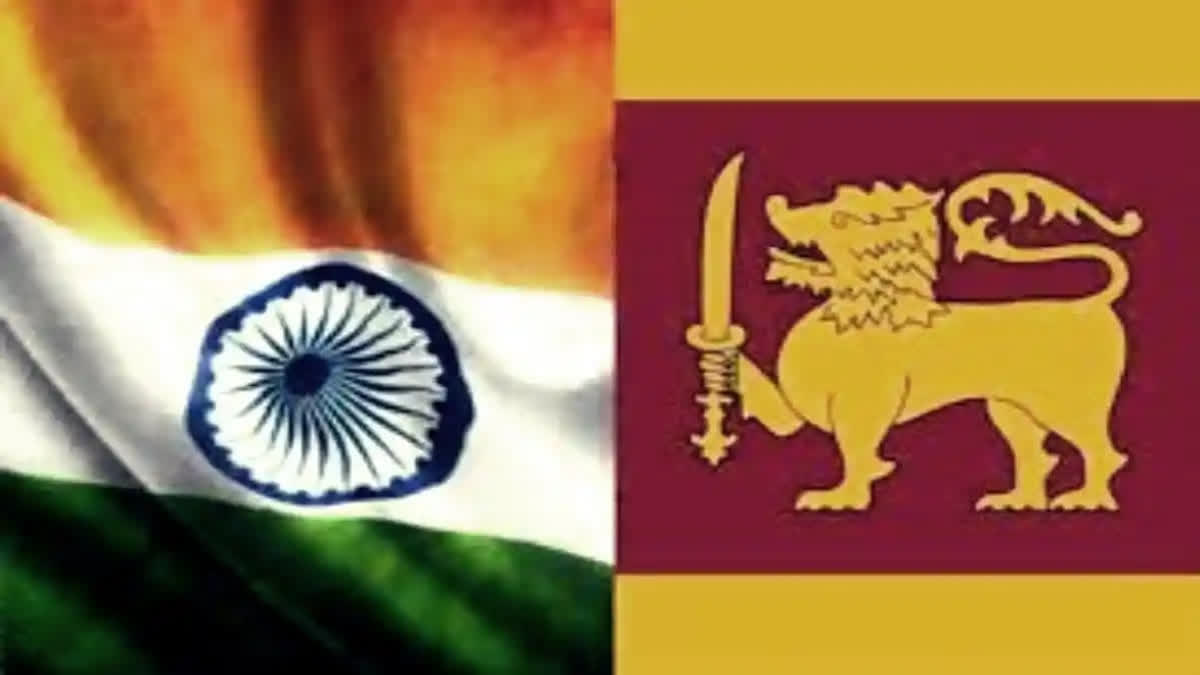New Delhi: In a major diplomatic development, High Commissioner of India to Sri Lanka Santosh Jha on Thursday handed over the first payment towards implementation of Hybrid Power Projects in Three Islands off Jaffna to Secretary, Minister of Power and Energy Dr Sulakshana Jayawardena, and Chairman of Sri Lanka Sustainable Energy Authority (SLSEA) Ranjith Sepala at a ceremony held at the High Commission in Colombo.
According to the Indian High Commission in Colombo, a Memorandum of Understanding (MoU) for the implementation of the hybrid renewable energy projects in Delft, Nainativu and Analaitivy islands was signed between the Government of India and the Government of Sri Lanka in March 2022, and subsequently, contract for the project implementation was signed by SLSEA with U Solar Clean Energy Solutions Private Limited on March 1, 2024.
The project, aimed at addressing the energy needs of the people of the three islands, which are not connected to the national grid, will combine various forms of energy, including both solar and wind, towards optimising capacities. It is important to note that initial work has commenced at the three sites and the project is scheduled to be completed by early March 2025 and handed over by late April 2025. The project is being implemented under grant assistance of USD 11 million from the Government of India and reaffirms India's commitment to bilateral cooperation in the energy sector, as well as the human-centric nature of India's development partnership initiatives in Sri Lanka.
India has been at the forefront in helping the island nation deal with the severe economic crisis .New Delhi has significantly increased its investment in Sri Lanka in recent years, focusing on several key sectors to strengthen bilateral ties and promote economic stability in the region.
India has invested in various infrastructure projects, including the development of ports, roads and railways. A notable example is the East Container Terminal (ECT) project at the Colombo Port, where India has shown interest in collaborating with Japan and Sri Lanka for development and management.
New Delhi has been involved in energy projects in Sri Lanka, such as the Sampur Power Plant project. Additionally, there's ongoing collaboration in renewable energy projects, including solar and wind energy.
It is worth noting that India has provided assistance to Sri Lanka's fisheries and agricultural sectors through investment and technology transfer, aiming to enhance productivity and sustainability.
India's pharmaceutical companies have invested in Sri Lanka, contributing to the healthcare sector by providing affordable medicines. There's also cooperation in establishing healthcare facilities and medical training programmes. As a part of economic assistance, India has extended credit lines and financial assistance to Sri Lanka, particularly during times of economic difficulty.
For example, India provided assistance to help Sri Lanka manage its debt crisis and ensure the availability of essential commodities. These investments are part of India's broader strategy to foster stability and economic growth in its neighborhood, enhancing regional cooperation and addressing mutual concerns such as security and trade.
Read more: India to Remain Sri Lanka's Most Reliable Friend; Offers Modern Defence Equipment



